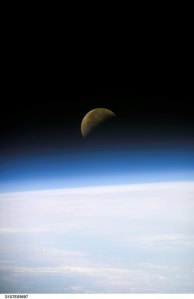 If you have been paying attention to the press in recent years you will no doubt have been bombarded by the message that science and faith are in conflict with each other. Some would say that science and faith are incompatible because science is about reason, while faith is about believing in things that don’t exist. But I am a scientist and a Christian, and for me Christianity is the worldview that makes the most sense in the light of everything I know and experience in the world – including the historical evidence for Jesus and his resurrection.
If you have been paying attention to the press in recent years you will no doubt have been bombarded by the message that science and faith are in conflict with each other. Some would say that science and faith are incompatible because science is about reason, while faith is about believing in things that don’t exist. But I am a scientist and a Christian, and for me Christianity is the worldview that makes the most sense in the light of everything I know and experience in the world – including the historical evidence for Jesus and his resurrection.
Let me share an insight with you. As I finished reading Richard Dawkins’ ‘The God Delusion’, I was inspired by his last section entitled ‘The mother of all burkas’. If you ignore the obvious anti-religious allusion and focus on Dawkins’ wonderful description of how science opens our eyes to how incredible the world is, this piece of writing can actually be a powerful call to worship the creator who made everything revealed to us by science.
“Our eyes see the world through a narrow slit in the electromagnetic spectrum. Visible light is a chink of brightness in the vast dark spectrum, from radio waves at the long end to gamma rays at the short end. Quite how narrow is hard to appreciate and a challenge to convey. Imagine a gigantic black burka, with a vision slit of approximately the standard width, say about one inch … The one-inch window of visible light is derisorily tiny compared with the miles and miles of black cloth representing the invisible part of the spectrum, from radio waves at the hem of the skirt to gamma rays at the top of the head. What science does for us is widen the window. It opens up so wide that the imprisoning black garment drops away almost completely, exposing our senses to airy and exhilarating freedom”.[1]
Dawkins then goes on to show how science turns our everyday perception of things upside down. Science opens a window on an invisible world more fantastic than we could ever have imagined. This is the world that I believe God made.
I immediately turned to my daily Bible reading in Luke’s gospel about Jesus’ healing of a dead girl. With my imagination still in the invisible world of science, I saw Jesus as the one who knows that invisible world inside out and – more importantly – spoke it into being. How does Jesus’ awesome power relate to his ability to raise people from the dead? Obviously we won’t be able to understand how that works in scientific terms. We can’t routinely study dead people coming back to life in a lab. A miracle is a one-off event, usually in response to prayer, when God shows us how incredible he is and how much he loves us. But this healing and others like it show me that God is the creator of the universe and has the power to transcend everything, including the knowledge we’ve gained using the tools of science.
The view of the world that I have outlined here is a huge incentive for Christians to do science. We need to understand the world God has made and learn to use all the rich resources that are available to us through science and technology in the most appropriate, fair and sustainable way. And what better way to provoke a sense of awe and worship than to share scientific discoveries about the universe? Lastly, the knowledge that God is sovereign and can transcend everything we know is deeply humbling, and a reminder that he is our ultimate teacher. From where I’m standing, good science and genuine faith are definitely compatible.




